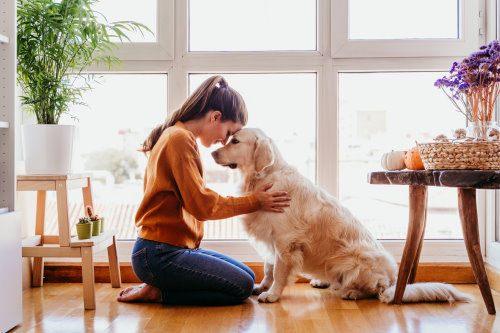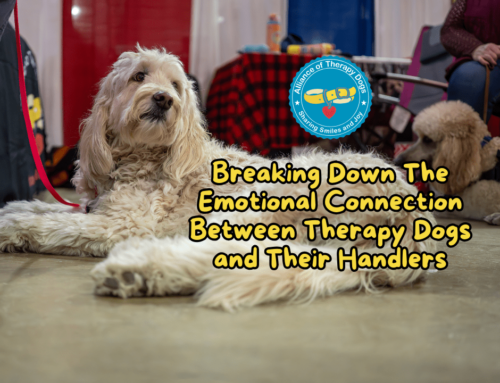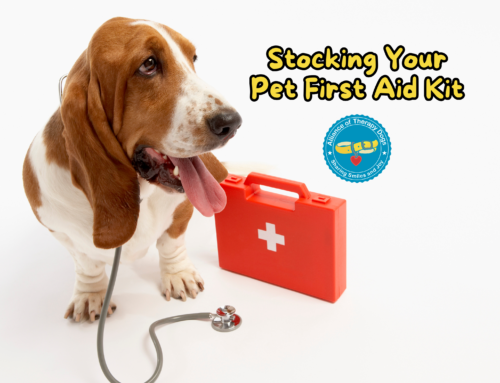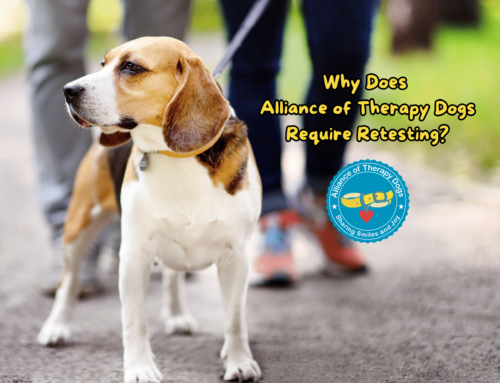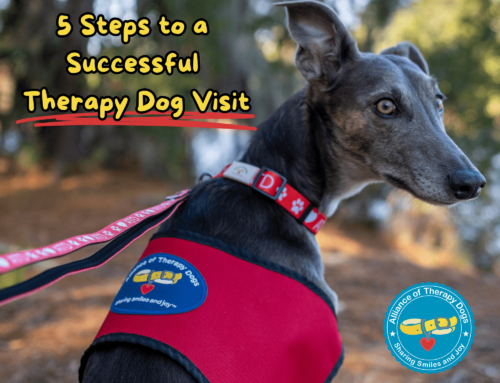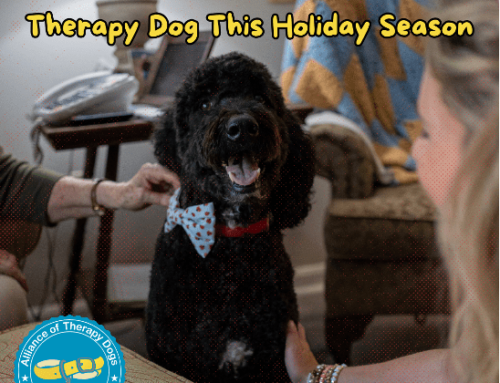During the coronavirus epidemic, support and goodwill are needed more than ever before. Loneliness and ill-health are becoming more commonplace, and a supportive network must be formed to carry everybody through.
It’s not just humans who have been the rock of many during these trying times; dogs are also the ever-loyal love machines they are, fulfilling the roles of a comforting presence while owners abide by social distancing rules. Working as therapy dogs, good boys and girls everywhere have been giving the lonely and vulnerable a new lease on life, providing a much-cherished bright spot in turbulent times.
However, the dogs get plenty out of these wholesome arrangements, too, setting them up for a life that’s enriched by love and learning. That’s why we’ve put together this article to help you understand how preparing to be a therapy dog can benefit your puppy!
Natural Discipline
Everyone loves their dogs, but puppies can be rowdy and raucous. However, therapy dogs need to be calm and relaxed, a comforting presence rather than a little (but charming) menace. Teaching them restraint and being passive rather than active will help them adapt to all sorts of situations both in the role and out. After all, there’s a time for delightful tricks, and there’s also a time to be on their best behavior.
Most of their job involves being petted, cuddled, and hugged, so patience and friendliness are the primary qualities they need. Dogs are born with plenty of both, but they’ll be interacting with people who don’t always necessarily know how to handle a dog properly. Therefore, it’s essential they can tolerate anyone who is clumsy or fully understand how to stroke them properly. This will teach them not to react to behavior that is of no threat or concern.
As much as canines need their freedom and curiosity, they also need a sprinkling of impulse control. By training them to be therapy dogs early, you are teaching the behaviors that all dogs should have. They’ll be more versatile in many situations and can be trusted to behave around children and the elderly, for example.
Reliable Routines
Instilling a sense of everyday normality in your pup’s life will help their therapy visits go smoothly.
Routine is great for pups, reliably stimulating their mind, and body in equal measure. It’s what keeps them active and raring to get out the door! When they can start to piece a routine together, day-to-day life with your puppy is a complete joy from morning to evening.
Preparing to be a therapy dog will give them a sense of structure and allow your faithful companion to anticipate critical moments of their day to look forward to, as well as making them feel safe. The anticipation for each visit builds inside them excitedly, allowing them to enjoy it more when it finally arrives. The more they do it, the better they’ll get.
Therapy dog visits will become an inherent part of their being, granting them a more fulfilling and dynamic lifestyle. After all, it’s lovely just having somewhere to go every day. Dogs share that outlook – click their lead and see what happens if you’re not convinced!
New Surroundings
Everyone likes a change of scenery, particularly after numerous lockdowns. Well, that undoubtedly goes double for your doggo!
Dogs thrive on their sense of smell, gleaming all the information they can from the world via a few quick sniffs. Every blade of grass or corner of a room has a different scent, determined by those who passed through before. It sets their mind racing, almost as if there’s a story behind every inhale.
In preparing your therapy dog, your puppy will have the chance to explore new environments in all their scent-filled majesty. There are many different places that they can immerse themselves in during their tenure; schools, hospitals, workplaces, airports, and nursing homes, to name a few. Each will come with fresh surroundings that stimulate the pup, ensuring that they never once get bored or tired of the same old scenery.
Social Stimulation
It’s only natural to want to engage with a variety of people in life. While dogs stay loyal to their pack, they too are intrigued by new entities outside of their circle.
During their role, your furry little one will come into contact with different kinds of folks. They’ll learn how to interact with individuals of different ages, disabilities, and circumstances meaningfully. You can prepare for this by doing the same, having him or her interact with family members, friends, or even strangers on your walks. Every scratch behind an ear and nugget of adoration from a new person fully brightens their world every single time.
Dogs can read feelings and behave based on what they interpret, and the chance to flourish that you should take when they’re young to keep them social and engaged. They also have unique relationships with different individuals; some pups will cuddle with a specific individual yet be more likely to play with another, for example. Preparing them well can help them treat all people the same, regardless of their preferences.
Emotional intelligence is a highly prized trait in all living beings, so having the ability to tap into that acute level of understanding will undoubtedly serve your puppy well. A vast pool of relationships and interactions is a great way to keep them happy and healthy and get them ready for all the responsibilities they face ahead.
In some ways, it would be a real shame to deny your puppy those unique bonds. No doubt know just how perfect your best friend is, so why not share the best parts of him or her with those in need?
If you want to find out more about certified therapy dogs, how you can help, and much more, then call us on 307-432-0272.

